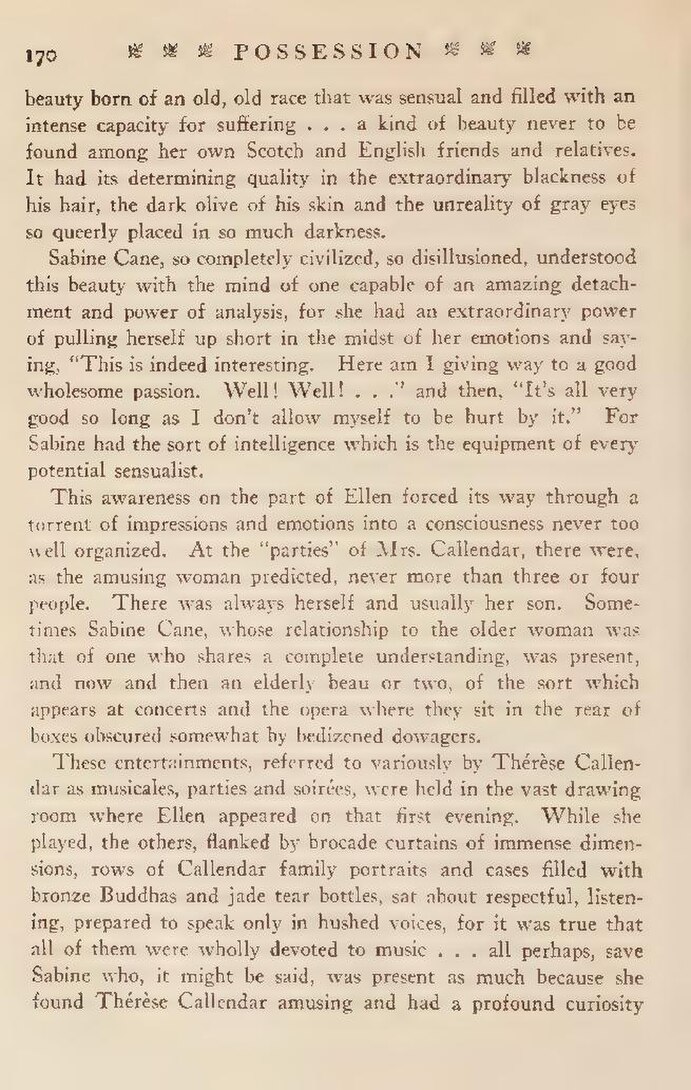beauty born of an old, old race that was sensual and filled with an intense capacity for suffering . . . a kind of beauty never to be found among her own Scotch and English friends and relatives. It had its determining quality in the extraordinary blackness of his hair, the dark olive of his skin and the unreality of gray eyes so queerly placed in so much darkness.
Sabine Cane, so completely civilized, so disillusioned, understood this beauty with the mind of one capable of an amazing detachment and power of analysis, for she had an extraordinary power of pulling herself up short in the midst of her emotions and saying, "This is indeed interesting. Here am I giving way to a good wholesome passion. Well! Well! . . ." and then, "It's all very good so long as I don't allow myself to be hurt by it." For Sabine had the sort of intelligence which is the equipment of every potential sensualist.
This awareness on the part of Ellen forced its way through a torrent of impressions and emotions into a consciousness never too well organized. At the "parties" of Mrs. Callendar, there were, as the amusing woman predicted, never more than three or four people. There was always herself and usually her son. Sometimes Sabine Cane, whose relationship to the older woman was that of one who shares a complete understanding, was present, and now and then an elderly beau or two, of the sort which appears at concerts and the opera where they sit in the rear of boxes obscured somewhat by bedizened dowagers.
These entertainments, referred to variously by Thérèse Callendar as musicales, parties and soirées, were held in the vast drawing room where Ellen appeared on that first evening. While she played, the others, flanked by brocade curtains of immense dimensions, rows of Callendar family portraits and cases filled with bronze Buddhas and jade tear bottles, sat about respectful, listening, prepared to speak only in hushed voices, for it was true that all of them were wholly devoted to music . . . all perhaps, save Sabine who, it might be said, was present as much because she found Thérèse Callendar amusing and had a profound curiosity
